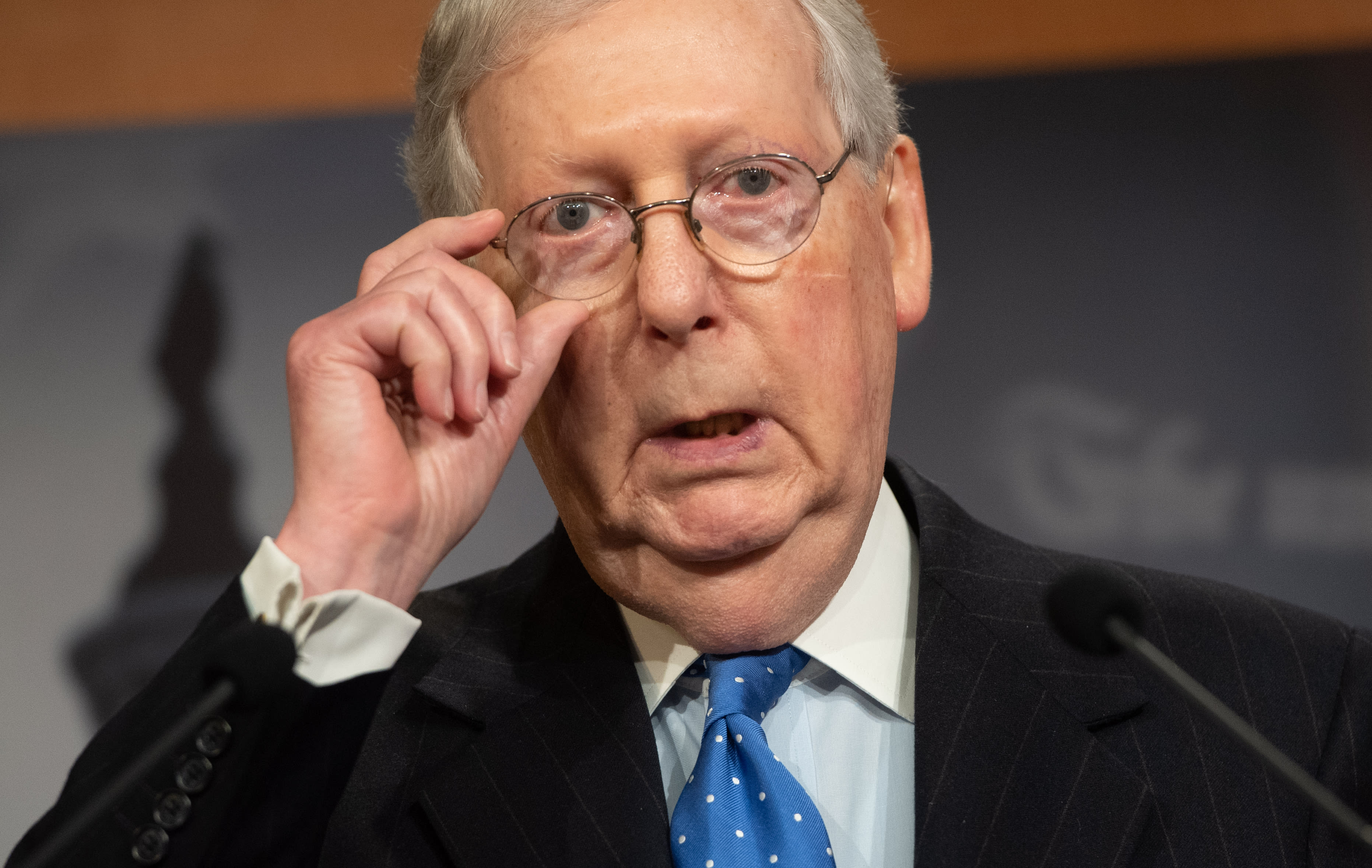
There will be no more Senate votes Monday on a massive stimulus package as Democrats and Republicans continue to negotiate terms, two Senate aides told CNBC.
The measure, which has a price tag well over $1 trillion and is intended to limit the economic pain from the coronavirus outbreak, failed a key procedural vote in the Senate on Monday afternoon.
The talks have been marred by partisan disagreement. It previously failed to clear the procedural hurdle Sunday.
Senate Democrats have criticized the $500 billion fund that the Republican proposal sets aside for distressed businesses, calling it a bailout fund “with no strings attached.” Democrats are also seeking enhanced unemployment measures and protections for workers. GOP lawmakers slammed Democrats for seeking climate provisions within the measure, as well. House Speaker Nancy Pelosi floated her own proposal for a stimulus bill Monday.
Senate Minority Leader Chuck Schumer nonetheless was optimistic earlier Monday, seeing he believed the two parties could come to an agremeent by the end of the day.
“We’re very close to reaching a deal. Very close. And our goal is to reach a deal today,” he said. “And we’re hopeful, even confident that we will meet that goal.”
He said two parties had come to certain agreements about revisions to the Republicans’ bill, including adding more unemployment protections and adding more money to hospitals. He said the Democrats are “fighting hard and making progress” on more funding for state and local governments.
Stocks cut their losses on Schumer’s optimistic words. But the Dow Jones industrial average ultimately closed 3% lower, at one point giving away all of its gains since Trump’s election.
After the second procedural vote failed, McConnell threw aside his usually placid appearance as he tore into Senate Democrats for the second straight day on Monday, accusing them of filibustering a deal the country needs immediately. He accused Democrats of adding to their wish list, rather than focusing on getting out a deal quickly.
The Trump administration and Congress are eager to halt the crushing economic impact of the coronavirus and the uncertainty it has caused investors. The Federal Reserve said Monday it will launch a barrage of programs to help the markets, including an open-ended asset purchase program and moving into corporate bonds for the first time.
Treasury Secretary Steven Mnuchin told CNBC on Monday that Congress is “very close” to a stimulus agreement and must get it done “today.”
President Donald Trump, in a series of tweets Sunday night and Monday morning, signaled resistance to continuing stay-at-home guidelines for more than 15 days − and an urge to return to normalcy. “WE CANNOT LET THE CURE BE WORSE THAN THE PROBLEM ITSELF,” the president wrote.
The Sunday night Senate vote on whether to advance the legislation was 47-47, well short of the 60 votes needed, after Democrats laid out a number of objections to the Republican proposal. Those issues included what Democrats said was a lack of protection for workers and sufficient funding for hospitals. They took aim at a $500 billion fund to support “severely distressed business,” arguing it allowed too much control to the Treasury.
Mnuchin said the Federal Reserve can leverage that fund to offer more than $4 trillion in support to U.S. businesses.
The fund allocates $58 billion for passenger and cargo airlines and $17 billion for businesses critical to maintaining national security. It leaves the rest open to businesses, states and municipalities. Companies from hotels to restaurants to manufacturers have argued the coronavirus has pummeled their business, and they need government aid just to stay afloat.
The proposed bill gave considerable authority to the Treasury to implement the fund, including discerning which parties receive money. It did offer concessions to Democrats like a ban on stock buybacks for companies that receive federal aid while a loan is outstanding, and maintaining payroll “to the extent practicable.”
Some Democrats, though, worried those stipulations weren’t strong enough. One Democratic aide said opponents believe the bill gave Treasury the power to waive the ban on buybacks. There was also a belief that capping executive salary for anyone making more than $425,000 for the next two years was too weak.
“Maybe the majority leader thinks it’s unfair to ask for protections for workers and labors from companies that getting hundreds of billions of dollars, we think it’s very fair to ask for those,” said Schumer on the Senate floor. Schumer also said the terms and of those recipients of those loans would not be public for six months.
One potential solution to what Democrats say is a lack of fund oversight could be an inspector general to oversee it, one of the sources said. A Democratic aide said he could not confirm whether the party is pushing to add an inspector general, but noted the party is “fighting for transparency and accountability and restrictions on it.”
Republican Sen. James Lankford, though, said the Democrats’ asks went too far, resting on the belief that “if a corporation gets a loan from the federal government, then someone here in D.C. should be able to determine how that company is run.”
That includes putting a union representative on the board or having a role in deciding whether layoffs are appropriate, he said. Lankford also said Democrats were advocating that any company taking out a federal loan raise their minimum wage to $15, and agree to no stock buybacks for a decade.
Meantime, airlines also expressed discontent over the proposal. The industry has sought relief in the form of cash grants and loans, but the $500 billion fund only offered loans and guarantees.
The language proposed by Republicans leaves open the structure of the loans. National Economic Council Director Larry Kudlow said Monday he “personally likes” the “taxpayer taking a piece of equity” in government loans.
Still, there may be other ways the government could help bridge the divide, like offering airlines zero-interest loans, or loan forgiveness if they fulfill certain obligations, such as maintaining payroll.

